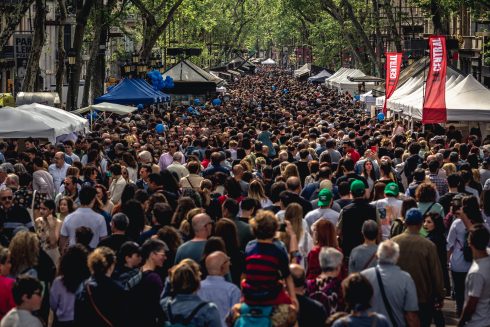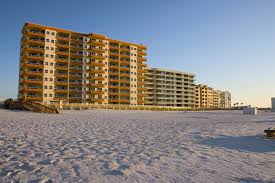ON a scale of one to horrifying, arriving late to a room full of strangers and being asked to introduce yourself in a language you don’t speak is pretty high up there.
Thankfully Pueblo Espanol is a forgiving place – after all, I had just had an eight hour drive up there – and so I was allowed to sit quietly at the back and enjoy the gentle hum of incomprehensible chatter going on around me.
For the first half an hour, anyway.
Tucked away in the idyllic surroundings of the Salamanca mountains, in the remote Castilla y Leon village of La Alberca, this is certainly a Spanish school with a big difference. ‘Total immersion’ is the name of the game, and there is one rule and one rule only: NO ENGLISH ALLOWED.
The idea is to return students of Pueblo Espanol to childhood. With the theory running that we have all successfully learned a language at some point in our lives, and for the majority of us this was when we were very small.
We pick up language instinctively from hearing others speak it, from being surrounded by it constantly, and slowly beginning to understand what’s going on around us. Look at how well kids adapt to Spanish when their parents move them here from the UK.
Pueblo Espanol works on the same principle. If we spend enough time fumblingly constructing sentences from the few words we do know, and listening to the beautifully grammatically-accurate speech of others, we will eventually learn.
And certainly that was my experience. But for most of the other students on my course – who came from as far and wide as Australia, Canada and Benalmadena – this was also an opportunity to relax, to sit back and absorb the fresh air and make leaps and bounds towards fluency.
Pueblo Espanol is a real cultural and linguistic retreat. Hours shut away in cramped classrooms pouring over grammar books belong to another world. Here it’s about speech, for anything up to 15 hours a day.
Meals, group outings, of which there are many, including jamon cutting, wine tastings and visits to dance schools, are all conducted in Spanish.
The two course leaders – Sabela and Marcos – are assisted by between 10 and 15 Spanish volunteers – true masters of patience and resilience.
The obvious advantage being that you actually talk Spanish to Spaniards for an enormous portion of your time.
I found that a few of the particularly patient volunteers singled me out as definitely needing more help than the average student and took me under their wings – and for that I’m extremely grateful.
There are a huge variety of different activities scheduled throughout the day, all of which help you learn an incredible amount for just a week’s course, without really realising it.
The day begins, as it should, with the most important meal: desayuno. It’s quite a shock to the system to have to begin the Spanish-speaking day before you’ve really woken up. When your head’s still a bit fuzzy from a good night’s sleep in the surprisingly luxurious hotel rooms, and before you’ve got your paws on a good cup of coffee.
But this is how the Spanish do it, so this is how the Spanish estudiantes do it too.
After breakfast come the activities. These can be anything from tu a tu – one on one conversations – to teleconferencias – group phone calls involving role play and interview skills.
And the teleconferencia scenarios are very creative.
I was a journalist – the Pueblo Espanol team try to base them loosely on real life – in charge of publicity for an American musician – another of the students – who was making the leap across the Atlantic and reaching out to the Spanish market.
What’s interesting about role-play scenarios is that you’re trying so hard to get into the part you’re playing, the language doesn’t seem so much of a struggle. It’s as though when you’re not hung up on language and accurate grammar, everything flows a lot more smoothly.
So in an average Pueblo Espanol day, the four hours after breakfast are filled with these sorts of mind-bending (or relaxing depending on how advanced your Spanish is) activities.
And then comes lunch. Food is a very serious part of Pueblo Espanol, not only because everything is sumptuous, and very typically Spanish, but also because there’s an incredible amount of it.
Every day lunch was a three course affair, with coffee and fruit for afters. In fact by the fourth day a lot of people were begging for smaller portions or for solo un ensalada pequena, because it was all proving just too much.
After lunch it’s time for a siesta, of course. With that much food weighing you down it would be nigh on impossible to do much thinking in any language. And it does feel very Spanish to retire to your cool and comfortable bedroom for a quick afternoon kip.
But not for long. The afternoon is chock-a-block with more activities, this time of a more group-bonding variety – group quizzes, and creative challenges that tended to descend into dressing up and ridiculous wigs.
There are trips out in to La Alberca itself. One day sees a visit to a museo casa, to see what the traditional Castilla y Leon farm house would be like. Another, a jamon masterclass, complete with cheese, bread, wine and an opportunity to cut your own – although it’s unlikely to be as wafer thin as the professional’s, judging by my group’s efforts.
And when you thought you couldn’t take any more, there’s more food in the form of cena. I’m firmly of the opinion that the best aspect of Pueblo Espanol is mealtimes. And not just because everything is delicious.
Spending your entire day speaking Spanish makes you realise that it’s when you’re slightly distracted, when you’re not 100% in language-learning mode – for example during meal times – that you actually learn the most.
You find yourself chatting to yourself in Spanish at strange moments, like when you’re showering or trying to figure out if you really can cope with extra pudding.
Some of the lucky and more linguistically-adept students even started to report dreaming in Spanish – a sure sign of progress.
“You see people having ups and downs during the week. But that’s what it takes to change the way we see and interact with things around us,” said Brian Bolles, the program manager.
“The only way to really break the way you view language is by jumping in at the deep-end.”
He makes a good point. The necessity of fully devoting yourself to speaking, thinking and dreaming Spanish is the reason that the course is in general only for intermediate speakers and above. You can always Check Grammar if you’re unsure.
Brian points out that the general rule is that if you can use all three tenses – past, present and future – in conversation, then Pueblo Espanol is right for you, and over the course of the week you will progress.
But it’s by no means easy. Those that get the most out of it are, of course, those that put the most in. There are plenty of opportunities to challenge yourself: from getting up in front of everybody to deliver the dreaded presentacion (I couldn’t dodge it forever!); to performing in a bit of Spanish theatre or a song from your country for everybody in an after-dinner sing-along.
It’s not all compulsory but you’ll get a lot more out of the school if you play along. And the feeling you get after you challenge yourself like that and come out the other side really does make it worth it.
I highly recommend it. Not just because of the astounding progress you can make with a language in just a week, but because it’s a wonderful opportunity to meet people from all over the world, eat great food, learn Spanish dances and sing Spanish songs.
If you think learning Spanish is all about learning grammar by rote, and cramming for spelling tests, Pueblo Espanol will make you think again.












I read the article and am very interested.
Would you please send me an e-mail address for the school/hotel and I can contact them.
All thanks
Clive
Hi Clive,
please send us an email to Sonia: “[email protected]”
and Brian: “[email protected]”
Thanks a lot, have a nice day!